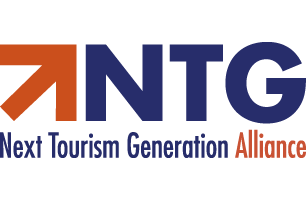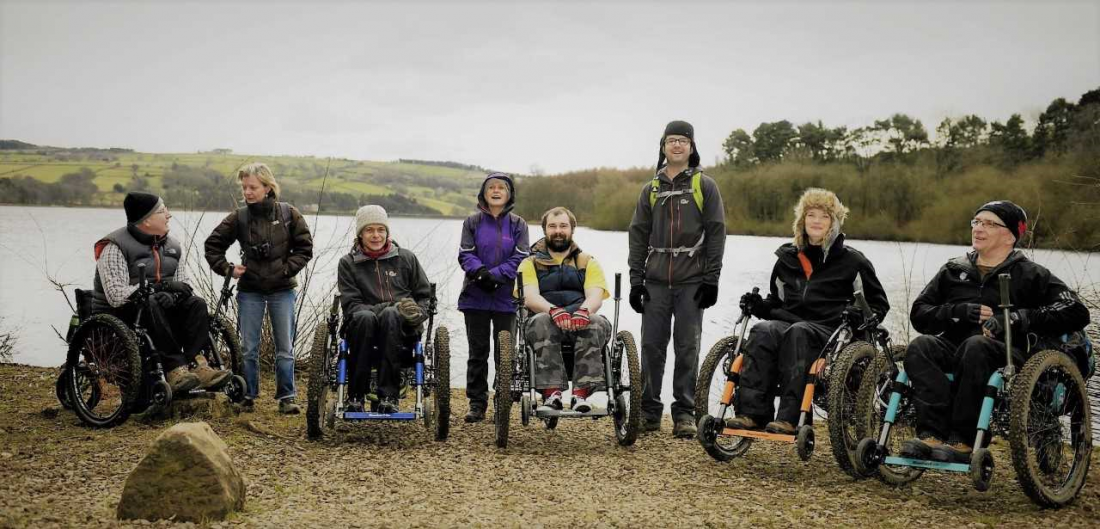A meeting with Dr. Vicky Richards: Accessible Tourism
Vicky理查兹博士项目Director for Undergraduate Tourism Programmes and Lecturer in Tourism, Hospitality and Events (THE) atCardiff Metropolitan Universityteaches a 10-credit score module concentrating on social inclusion.Vicky has a wealth of experience and knowledge and has worked in disability services for 20 years within the third sector.From a tourism and hospitality point of view, she believes that the industry, such as hotels and restaurants, can easily begin to break down the barriers for people with disabilities and accessible tourism experiences.Next Tourism Generation (NTG)also aims to bring the attention toaccessibility for all in tourism. In this blog, Heini Jones, the Communications Officer from the Wales NTG project,interviews Vicky about social inclusion and the importance within the industry sub-sectors.
Introduction Social Inclusion education at Cardiff Metropolitan University
Vicky has many motivations to teach this subject from her background of working with disabled people and organisations and training people on how to engage appropriately to those with impairments and disabilities.The module focuses on disability, gender, sexuality, race, ethnicity and age discrimination, though concentrating mostly on disability awareness; engaging in the key underlying values such as “respect, dignity, individuality and breaking down of stereotypical barriers.”
How can we help to make tourism more accessible in a social context within tourism and hospitality?
“如果员工被训练和understanding and know what to do, they can make it accessible. I got into teaching diversity and social inclusion to tourism hospitality and events students at Cardiff Met as I very much wanted to teach students what I had learnt about accessibility from my previous job roles and education in association to disability. I know that it is society itself that creates the barriers for people. I investigate and teach how barriers are created and why there needs to be wider motivation and awareness to break barriers for everyone to feel represented in society. My students often say, ‘isn’t it common sense to treat people equally and to know how to communicate with everyone equally?’ I explain them, ‘yes it should be common sense, but unfortunately as an example yet another guide dog owner has been refused access to a restaurant this week, often as a result of ignorance and lack of knowledge.”
How can accessible tourism be advanced in the International Tourism industry and Welsh tourism industry? Can you identify any good practices in the industry already?
“It is important to begin understanding what barriers exist for people with disabilities as a whole. It is a frequent occurrence for people with disabilities that their disability is questioned ‘you don’t look blind’ which then means that a person has to constantly explain what their condition and situation is. This leads to feelings of being made to feel a fraud rather than be accepted as an individual and their needs catered to as with any other customer. There needs to be information on how accessible the premises and surroundings are, are the staff disability aware and so on. With this information, the disabled tourist can make an informed decision and plan the whole journey. It’s got to be about connecting THE organisations and disabled people through awareness training and perhaps projects.
It would be helpful for organisations to understand the general principles about disability equality and then filter down into specific skills such as communication (finger spelling sign language), practical skills such as how to guide a visually impaired person and how to help a person manoeuvre a wheelchair, how to look after a wheelchair; knowledge around providing accessible information and how to design inclusive environments. When researching for my PhD on Tourism Experience of Visually Impaired people, I discovered that one of the main themes highlighted by the participants was that this knowledge needed to start from primary school and upwards and hence the impetus to encourage a module with our first-year students.”
What knowledge in accessible skills such as ‘how to guide and a bit of fingerspelling’ for deaf and blind people are you trying to teach your students?
“Just that little bit of awareness is important for people to be able to comfortably communicate with anyone with disabilities. From this example, it is obvious that we could all use just that little bit of knowledge to ensure that whatever the disability, there shouldn’t be barriers in communication. That what’s important is willingness and training, noting that there are a variety of organisations delivering some form of training such as local third sector organisations, national charities and organisations such as AccessibleWales.”

Could you tell something more about the growing number of online based training courses?
“By working with disability organisations, it could enforce“a ripple effect”where organisations such as hotels can motivate their staff to learn how to communicate correctly to those who need help with their accessibility and essentially be able to“do it right”.This kind of planning and project organising isn’t new.That we were talking about the need for this twenty years ago, though it’s apparent that we struggle to find training and courses in these areas.”
In what ways could the tourism industry become more accessible to all through projects?
“An example of good practice in other areas of the industry though still investigating social barriers is “Gig buddies” which is an “organisation for people with learning disabilities who are partnered with ordinary person who like to go to gigs, and question if they could go together?”as what happens with key and social workers who take care for people with disabilities is that they will only take care of them for a certain amount of time, before the gig finishes, and“that’s not what going to a gig is, is it?”
By being partnered, they will be able to enjoy the evening in its entirety. These organisations are also brilliant at raising awareness through social media, which is another very important and good practice in raising awareness of social challenges in the industry.”
“It is this kind of good practice and associated organisations that I try to “filter through the module” to teach the students.”
“这不是关于政治正确性也不是about telling them what to think or do but it’s about raising the issues, increasing knowledge, identifying barriers and coming up with solutions to make THE all-inclusive. We are discussing some sensitive issues and scenarios which has been referred to as a ‘pedagogy of discomfort’ when although there might be some challenging conversations around the issues the notion is that we are actually discussing issues and addressing them and least we’re talking about these things.
It is the influence of organisations such as“Visit Wales and the Regional Groupsto encourage their members to think about these kinds of things. There are different areas in the UK which use good practices for accessible tourism, which needs to be adopted here in Wales. There are gaps missing in activities such as offering help by creating toolkits for establishments for services and helping to write access statements or having a bigger presence online for accessible tourism. I question if Wales can discover these good practices and adopt them to replicate the tools and support that VisitEngland offer for example.”
How could social media play a big part in accessibility in tourism?
“I believe that in the grand scheme of things, social media plays a big part in how accessibility in tourism can be influenced. It is about representation.In my lectures, I discuss the ways in which the media represents the people with those protected characteristics by asking my students to choose a newspaper article and how their topic is represented in that article, through what words are used, pictures are used and the tone used.
In what way is information fed to us, the general public, using tourism, hospitality and events?
“Who do we see in holiday brochures? Who do we see in the leaflets for events? We don’t see many disabled people, people of different ethnic minorities and older people for example. You can imagine all the people out there who never see someone like them out there on the TV and in the newspaper being represented.
We need to get the message across that it does not only make business sense to be inclusive to all but that it also about social responsibility. Think about why people go on holiday in the first place, why do people go to events? What is it about going for a meal? It’s about wellbeing, a sense of place and worth, feeling relaxed and having an experience that’s rewarding. Everyone should be having the same opportunity and experience. After all, the industry is about people and should be for ALL people.”
“I feel very strongly about raising these issues and imparting skills as it is a means of breaking down barriers and building confidence for students to be that person at the meeting highlighting access for all.”
- The header picture represents ‘Experience Communitychampioning accessible tourism in Yorkshire’.
Follow the efforts of the Next Tourism Generation via ourwebsite,Facebook,Twitter| #NTGskillsalliance or viaLinkedIn


No Comments